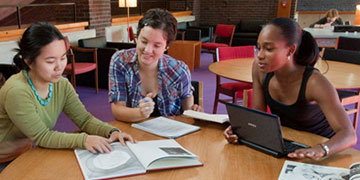To access this work you must either be on the Smith College campus OR have valid Smith login credentials.
On Campus users: To access this work if you are on campus please Select the Download button.
Off Campus users: To access this work from off campus, please select the Off-Campus button and enter your Smith username and password when prompted.
Non-Smith users: You may request this item through Interlibrary Loan at your own library.
Publication Date
2005-5
Document Type
Capstone
Study Type
EVS 300
Department
Environmental Science and Policy
Abstract
Anthropogenic emissions of greenhouse gases are known to be causing an increase in atmospheric greenhouse gas concentrations well above natural levels. This drastic increase may be causing global warming that is resulting in worldwide climate change. As part of an agreement with Clean Air-Cool Planet, whose mission is to address the issue of global warming, Smith College conducted a greenhouse gas emissions inventory. In 2004, Smith College emitted 33,025 metric tonnes of carbon dioxide equivalents, an 11% increase in emissions since 1990. 59% of 2004 emissions were due to stationary sources (burning oil and natural gas to produce steam for heat and domestic hot water). Thirty one percent of 2004 emissions were a result of electricity production, purchased from Mass Electric. The remaining 10% of 2004 emissions was due to transportation (the college fleet and daily commutes to the college), agriculture (horses in the college stables and fertilizer application) and refrigerant gases. While formulating policies to reduce emissions, Smith College has focused on the sectors that produce the most emissions: stationary sources and electricity. Some options that would reduce the college’s emissions include: turn building heat down from 70ºF to 68ºF, repair or replace old heating and insulation systems, install a co-generation plant that burns natural gas, diesel and biodiesel, and implement policies that encourage energy conservation, such as turning appliances off when leaving a room for any period of time.
Rights
© 2005; Elizabeth Thomas
Recommended Citation
Thomas, Elizabeth, "Greenhouse Gas Emissions at Smith College: A Comprehensive Inventory from 1990-2004 and Suggestions for Future Emissions Reductions" (2005). Capstone, Smith College, Northampton, MA.
https://scholarworks.smith.edu/other_projects/88
Smith Only:
Off Campus Download


